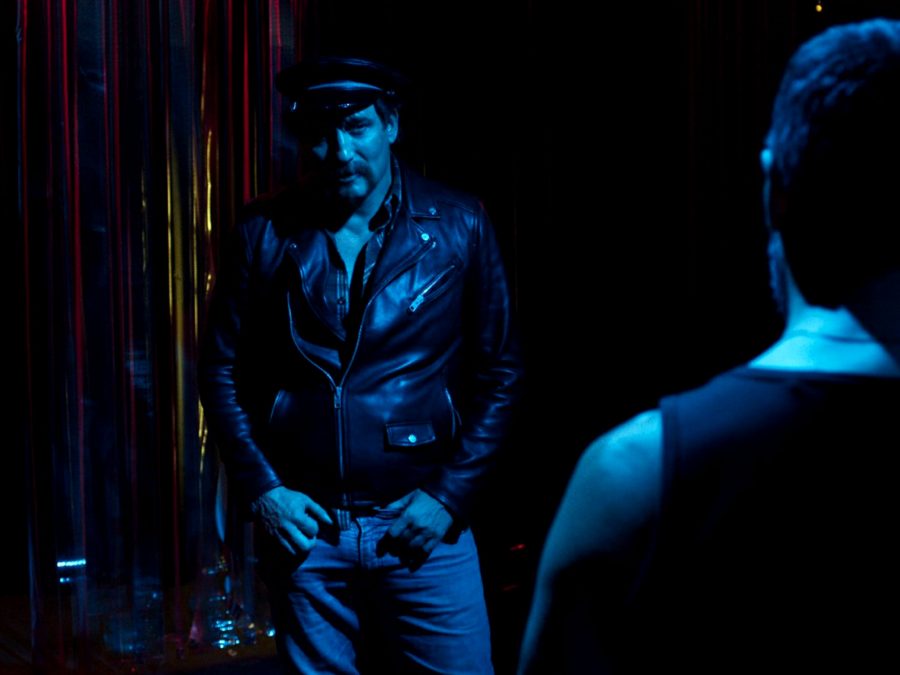Enfant Terrible is a fittingly flawed portrait of Rainer Werner Fassbinder
Rainer Werner Fassbinder, twice rejected by the Berlin Film School in the mid-1960s, was a prominent figure of New German Cinema. His self-abusive tendencies, exacerbated by drugs and alcohol abuse, was matched only by his productivity.
Before his death at the age of 37 he wrote and directed close to 40 feature films, two television series, three short films, four video productions and 24 plays between 1965 and 1982. Querelle, Fassbinder’s final film, was completed months before he died and arguably provided the catalyst for New Queer Cinema (Fassbinder himself was openly bi-sexual).
Enfant Terrible, Oskar Roehler’s vibrant vision of Fassbinder’s world, is an engrossing watch, but at times it feels like a missed opportunity to represent anything more than the sensationalist and pathological facets of the filmmaker’s life.
The film is much more successful on an aesthetic level, with blue, red and violet hues creating a radiant visual tone. Often scenes are contained within the walls of a studio as we move through the story, even though the events are happening outside. These sequences are beautifully stylised and heavily evocative of Querelle and the New Queer Cinema movement from which the likes of Todd Haynes’ Poison, Gregg Araki’s Nowhere and Barry Jenkins’ Moonlight originated.
Enfant Terrible’s opening scene sees Fassbinder (played by Oliver Masucci) being berated by members of the Action-Teater in 1967, during his rise to becoming director of the company. Making a name for himself quickly, he brings about dramatic changes to staging, bullishly ordering around members of the group. This establishes the beginning of his relationship with the company and the dynamics between them, but leaves room for explanation.

Screenwriter Klaus Richter’s emphasis on Fassbinder’s tantrums and meltdowns makes the action in Enfant Terrible feel a little too heightened, too hammed up. Fassbinder was a renegade, but in this context his story plays out almost like a parody. Roehler imitates Fassbinder’s style but with an exaggerated focus on the wrong areas, which ironically obscures the reason he became such an important filmmaker: his work.
Having said that, creative casting breathes life into the film. Oliver Masuccci’s performance is never less than brilliant; he gets the balance between the unpredictability of someone addicted to drugs and the vulnerability of a shy recluse who just wants to be appreciated – professionally and personally – just right. Most characters appear as themselves, such as lovers Armin Maier (Jochen Schropp) and El Hedi Ben Salem (Erdal Yildiz), who played the title character in Ali: Fear Eats the Soul.
Intriguingly, a number of people from Fassbinder’s inner circle appear in the film under pseudonyms – “Martha” (Frida-Lovisa Hamann) bears a resemblance to Hannah Schygulla, who played Joanna in Love is Colder Than Death, while the true identity of “Gudren” (Katja Reimann) remains a mystery, leaving room for speculation that it could be Ingrid Caven or Irm Hermann (perhaps a hint of both).
Thematically, Fassbinder’s films are about brutality, exploitation and power. Enfant Terrible reflects that, but it makes the mistake of thinking that these themes begin and end with Rainer Werner Fassbinder. A shift in values and attitudes has made space for reflection and reevaluation of his work, revealing not only how he maintained his integrity as a filmmaker but also how he disrupted the way we understand and interpret film.
A selection of Rainer Werner Fassbinder’s films are available to watch now on BFI Player.
The post Enfant Terrible is a fittingly flawed portrait of Rainer Werner Fassbinder appeared first on Little White Lies.
![Forest Essentials [CPV] WW](https://s3-us-west-2.amazonaws.com/pcw-uploads/logos/forest-essentials-promo-codes-coupons.png)
0 comments